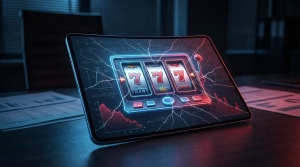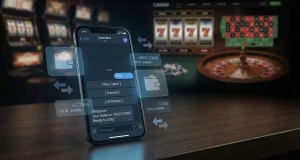How Much Can You Realistically Win Playing Slots? (And When to Cash Out)
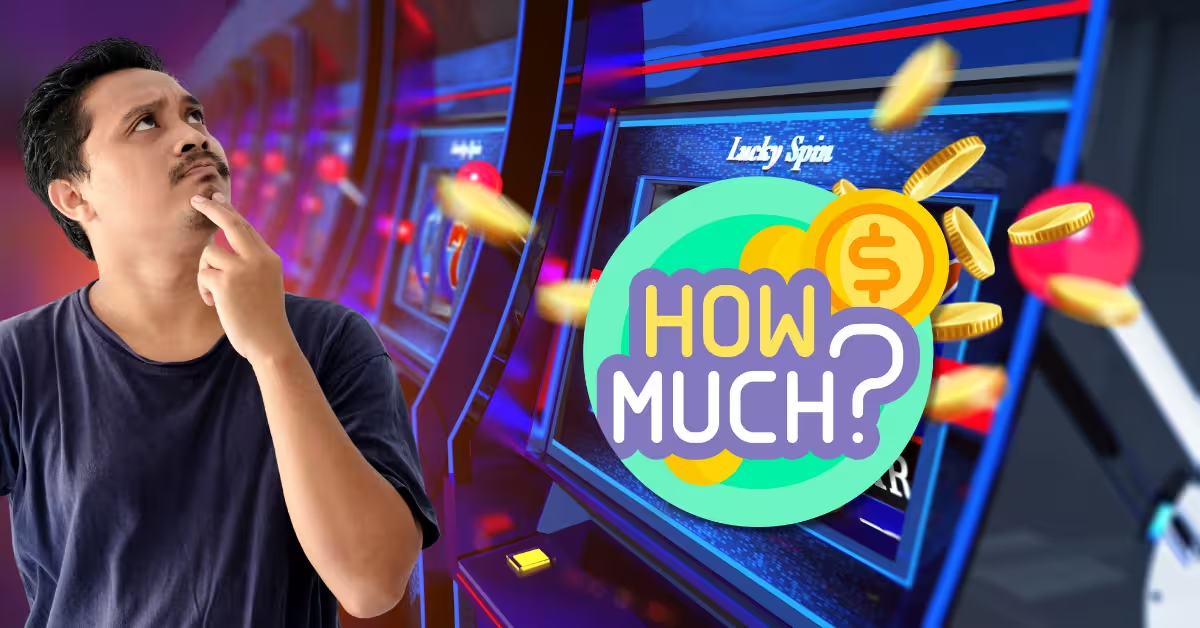
Slot machines are so good at selling you spin. Yes, that’s a bad pun, and we can feel you groaning. But that doesn’t make it true!
They give you the idea that a spin will change your life. You’re picturing buying a yacht; you don’t know how to sail and don’t really like the water, but you still have the image in your head. It’s a beautiful lie that’s wrapped up in neon, sound effects, and the occasional lucky winner who might be buying that boat you were thinking about if you were in their shoes.
The truth is this: Slots can pay out huge amounts of money. But, and this is a big “but,” they also tear through bankrolls like it’s a full-time job and they’re paid double for OT, which, to be fair, is their job.
How can you tell what’s real and what’s casino daydreaming? Can you get a life-changing win, or are you just feeding money into a machine that’s programmed to keep you hopeful and broke?
We aren’t trying to stomp on your dreams! All we want to do is run them through a reality check. If you want to know how much you can realistically win, what “winning” really means in slot terms, and if you should quit while you’re ahead? Keep reading to find out!
Understanding Slot Machine Payouts
Before you start planning what you’ll do with your imaginary jackpot, you have to know how slots work. You’re up against some mammoth math; they’re carefully engineered games, and that math is behind every win, loss, and near miss.
If you’ve ever felt like you were doing everything “right” but still walked away with nothing, you’re not unlucky or cursed. That was the game doing exactly what it was built to do.
Let’s get into how slot outcomes are determined, why most wins are barely worth a shrug, and what separates the games that might give you a chance from the ones that just burn your time and money.
What Determines Slot Wins?
What’s controlling the wins? RTP, that’s what. It’s the game’s long-term payout rate, expressed as a percentage. So if a slot has a 96.3% RTP, it means that the machine will return $96.30 for every $100 wagered. The catch here is that the wins are “over time,” and that could mean millions of spins. It’s not tied to your session, your luck, or how long the machine’s been idle.
Here’s what you should know about RTP:
- Online slots usually range from 94% to 97% RTP
- The higher, the better! Anything that’s above 96% is a solid slot
- Land-based slots can drop into the low 90s, or even worse, in high-traffic areas like airports and tourist casinos
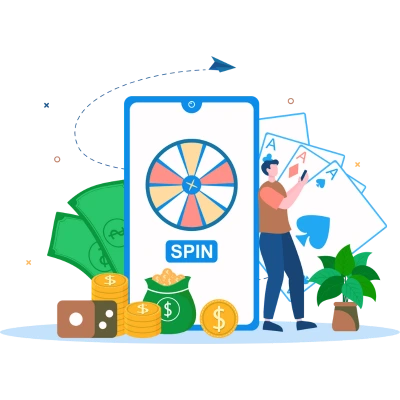
RTP isn’t a prediction; it’s a house rule. The higher it is, the less you’re losing on average, but it doesn’t mean you’re gonna win anytime soon.
Volatility: Low vs. High – What’s Safer vs. Riskier
Volatility is what separates “lots of little wins” from “maybe something big at some point.” Low-volatility games tend to pay back small amounts on a regular basis, which is just enough to make you feel like you’re getting somewhere. High-volatility games don’t give out much, but they can hit for hundreds or thousands of times your bet in one shot.
If you want longer sessions and a better chance at walking away with some of your bankroll balance intact, low volatility is safer. If your goal is a big payout and you’re okay with running through your deposit, high volatility is your wheelhouse.
Neither one guarantees anything. It depends on if you’d rather lose slowly or hardly ever win, but if you do, it’s a way bigger win.
The Role of Random Number Generators (RNG)
This is where most of the slot machine myths fall apart. Slot outcomes are all controlled by an RNG, which is always cycling through numbers, even when nobody’s playing. When you hit “spin,” the RNG stops on whatever number it’s currently holding, and that determines your result.
There’s no timing. “Hot machines” don’t exist. No trick sequences. All spins are random and unrelated to the one before it. You’re not “due” for a win. The machine isn’t “warming up.” It’s all code and math, and the house has already accounted for all of it.
Typical Payout Structures
If you’ve played slots for more than five minutes, you already know that most wins aren’t really wins.
Below is what the majority of payouts look like:
- Matching your bet (aka a break-even spin)
- Getting back less than your bet (technically a “win,” but it’s still a loss)
- Scoring 2x or 3x multipliers that give you just enough to keep spinning
This is all intentional. The frequent, tiny payouts are meant to give players the illusion of progress. You feel like the game is being generous, but your balance begs to differ. It’s not scamming you; it’s working exactly as it was designed to work.
If you want to see real payout potential, it’s always buried in a bonus round or rare symbol combo. And those don’t come around very often.
Progressive vs. Fixed Jackpot Slots
Progressive slots are the ones with the big banners showing a constantly climbing jackpot. All spins feed a tiny percentage of the bet into a communal prize pool. Some progressives are local (specific to that casino), and others are linked across an entire platform or provider. Those are the ones that hit seven figures.
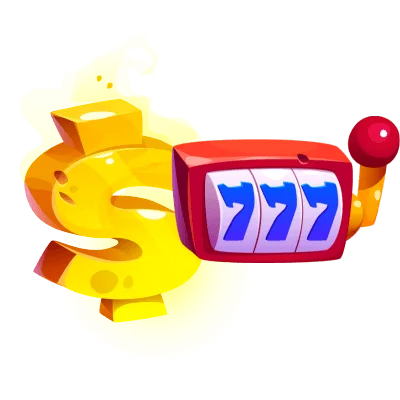
But there’s a trade-off, and this is what it entails:
- Your odds of hitting the top prize are microscopic
- The games all have lower RTP
- You’re paying a premium just for the minute chance that you qualify
Fixed jackpot slots don’t build prize pools. They just offer a top payout (like 5,000x or 10,000x your stake) if you land a very specific combo or bonus. The upside is capped, but the math behind them is usually easier and more favorable to players.
If you’re in it for the long shot? Go progressive, why not? But if you want structure and more clarity, fixed jackpots make the most sense.
Realistic Winning Scenarios: How Much Can You Expect to Win?
Ok, so when you’re playing slots, how far can $100 really go? Can you stretch it out into a couple of hours of fun, win a few hundred bucks, or hit the kind of payout people screenshot and post on the internet?
The truth lies somewhere between those two extremes. It all depends on what you’re playing, how long you’re spinning, and whether or not the game feels like cooperating. Below is what most people can expect to get from a single $100 deposit.
Average Player Experience
Let’s say that you’re betting $0.20 to $0.60 per spin. That gives you between 160 and 500 spins to work with. With that range, your playtime could stretch from 30 minutes to two hours; maybe longer if you’re getting regular small wins or bonuses, and shorter if the machine is stonewalling you.
This range assumes that you’re not using turbo spins or slamming bonus buys. If you’re playing fast or pushing higher stakes, that $100 can disappear in minutes. A bonus feature that doesn’t pay or a run of empty spins can erase a balance way faster than most people expect it to.
If nothing dramatic happens, there are no big hits, no re-triggers, no free spin runs, then you’re likely to end up with somewhere between $10 and $50. It’s not life-changing, but it’s the standard.
That’s how slot math works: long dry stretches that are broken up by the occasional pop of hope.
Most Sessions End between 80–95% Loss
It’s not really encouraging, but it is what it is. With most slot games, even ones that have 96%+ RTP, the short-term results are all over the place. That’s not the RTP malfunctioning; it’s the volatility doing what it was built to do.
This is why so many players feel like they’re getting the short end of the stick when in reality, they’re just playing short sessions on machines that are designed for extended volume. Without hitting a bonus or a strong base game payout, your deposit usually goes downhill fast.
Examples of Realistic Winnings
Time for a few examples of realistic slot machine winnings!
Turning $100 into $150 or $200 does happen all of the time. The wins usually come from mid-tier base game hits or a bonus round that lands early and pays decently, something like 50x–100x your bet size. You won’t be able to quit your job, but you are walking away with a profit.
Plenty of players set a target like this and cash out once they hit it. It’s boring, but it’s responsible. And it’s one of the only strategies that work.
This tier usually comes from a well-timed feature round. Think 150x–300x win on a $2 bet, or a 500x win on a low-stakes game that just happened to drop the right combo.
If someone is playing Money Train 3 on $0.40 bets and hits the bonus, lands an expanding symbol chain, they could win $600. These bigger wins do happen daily, but they still take the right sequence and a lot of patience to get there.
And then there are the big ones. We’re talking huge jackpots and four figures, baby!
Like the woman in New Jersey who won over $1.6 million on BetMGM with a $0.40 spin on Mega Moolah. Or the Las Vegas tourist who hit $10,000 on Lightning Link after a quick spin session using $1 bets.
The wins are real. But they’re rare, like, really rare. They happen to a teeny fraction of players, and they’re usually not repeatable. You can’t build any sort of financial plan around them. You just cross your fingers and toes, hold your breath, and hope they hit.
Odds Breakdown
What are the chances of multiplying your money? The numbers vary from game to game, but most slots will show something like the following over thousands of spin sessions:
- 2x–3x return: Happens around 10–15% of the time with moderate betting
- 5x–10x return: Happens closer to 3–5% of the time
- 100x or more: Less than 1%, unless you’re playing high-risk bonus-centric games
The above numbers drop even lower when you’re using smaller bet sizes. You can still win big, but most games scale rewards relative to stake, so don’t expect a jackpot win on $0.10 spins to pay the same amount as a $5 bet would on the same machine.
What about Jackpot Odds?
Progressive jackpot odds are buried really deep in the paytable logic, but rough industry estimates put the chances anywhere between 1 in 5 million and 1 in 50 million per spin, depending on the slot machine.
Most games don’t even advertise your odds—they just tell you that “any spin could win.” Which is technically true. But the likelihood is so small that it’s basically like playing a lottery ticket where the cost is ongoing and the result is instantaneous.
7 Ways to Know When You Should Cash Out
You’re up! Maybe not by much, but maybe you doubled your deposit. And not for the hard part. Do you stop now and cash out, or do you keep going?
This is where most players blow it.
Not because they never win, but because they don’t stop when they do. Casinos don’t have to rig slot machines when players are gladly giving their winnings back voluntarily. A bonus round hits, the balance looks decent for once, and instead of withdrawing, you’re right back in the spin loop, telling yourself there’s plenty more where that came from!
If you want real-world strategies for stopping before you regret staying, there are some rules that work (without sucking all of the fun out of playing). Also, how to know when your emotions have hijacked your decision-making, and how to use the built-in tools on gambling sites to give yourself an exit plan, even if your brain doesn’t really want one!
1. Setting Smart Cash-Out Goals
One of the simplest, most effective rules is this: if you double your starting balance, cash out. It doesn’t matter if you’re hot, it doesn’t matter if you think there’s more in the tank; just take the W and log off or go home.
Why? Because doubling up is rare enough to count as a really good result. And if you don’t lock it in, there’s a high probability that the machine will be taking it back. You’re not “building momentum,” you’re just playing longer against math that doesn’t care how you’re feeling.
If you start with $100 and hit $200, you’ve already beaten the house. Don’t talk yourself into giving it back!
2. The 25% Rule
Another option, if you don’t want to totally cash out, is to pull a chunk of winnings off the table. Set a rule that says: if I win more than X, I cash out 25% immediately. That way, even if you keep spinning and lose the rest? You’ve still got some extra money in your pocket.
This is a good middle ground that works really well if you’re prone to overplaying winning runs. You get the excitement of going after a bigger number, but you’ve already kept part of your win. Think of it as your Plan B.
You can adapt this number to your liking; some players go 50/50, some pull only 10%. The most important thing is to make it automatic. Don’t wait for the “right moment.” Pick a percentage and always abide by it.
3. Behavioral Triggers to Watch
Emotional tilt is a very real thing that can ruin all people who gamble. Slot players aren’t immune to it; a near-miss on a bonus round, a feature that pays way less than you expected it to, or a big win that disappears because you kept pushing your luck. All of these things can change your headspace.
If you’ve hit this point, you’re no longer playing with intention; you’re just chasing a feeling. That’s when you start upping your bet sizes, switching games every two minutes, or buying features that you know are overpriced.
Tilt doesn’t have to look like anger. Sometimes it manifests as desperation or denial. If you find yourself saying, “I can get it back,” or “It has to hit soon,” you’re already there.
Know what your personal warning signs look like. It could be frustration, overconfidence, or checking your balance every few seconds, but you should never ignore the signs. They’re the cue to cash out, not to keep going.
4. The ‘One More Spin’ Spinout
This is the graveyard where bankrolls go to die. You’ve won something. You honestly did consider cashing out. But instead, you take one more spin. One more feature. One more and you swear that you’re done.
Except it never ends at one more. It becomes 10, 20, and then oop! Your money’s all gone. It doesn’t matter how much you were up because you allowed the slot machine to set the pace.
The problem with this isn’t only the decision to keep playing. It’s the way that decision repeats itself with no exit strategy. Every time you say “one more,” you’re delaying the moment you get a win, and that delay is usually where it all goes south.
If you’ve ever regretted not cashing out when you had the chance, this is your pattern. And it needs a rule.
5. Tools to Help You Walk Away
There are tools built into all legit online casinos that are there to help you stop. They should not be ignored; they’re valuable.
One of these tools? Time limits. Gambling session limits are important! Designate how long you’re gonna play, and set a timer for that period. Once that timer goes off? Check your bankroll balance and make a decision to cash out or call it. Don’t move your time session limit goalpost based on how “hot” the session feels.
It sounds dumb, but time limits cut off the slide before it happens. They force you to make a choice based on where you are, not on where you hope to go.
6. Use Win and Loss Limits
This one’s easy: if you lose 50% of your deposit, stop. If you win more than 100%, stop. If you’re in between, say, up 20% or down 30%, check how many spins you’ve played and how the session’s going.
Build some boundaries around your play so that you’re not guessing when it’s time to quit.
These are the guardrails that can keep you from digging yourself into a hole or blowing past your peak and regretting it later.
7. Use Casino Tools
All licensed and safe online casinos have built-in features that are there to help you stay in control. A few of the better ones include the following:
- Reality Checks: Pop-ups every 15, 30, or 60 minutes that show you how long you’ve been playing and how much you’ve won or lost
- Auto Cash-Out: This lets you pre-set a balance that triggers an automatic withdrawal or play stop
- Session Reminders: Optional timers that pause the game until you confirm that you want to keep going
Use them! They’re built to help you. Even if you think you’re the best in the world at self-regulation, the features give you a buffer between impulse and action. They make it harder to talk yourself into playing until you bottom out.
Signs It’s Time to Stop Playing
Who wants to admit they’ve hit their limit if they’re in the middle of a good run or right after a brutal bonus round that paid $6 on a $1.20 bet? Even if you’re stubborn, there will come a time in every session where the best move is to stop. And it’s not because someone told you to!
You’ve Hit the Goal You Set, But You’re Still Clicking
You said you’d stop at $200. You’re at $215. So why are you still spinning?
This is a super common trap: setting a target, reaching it, and then convincing yourself it wasn’t “high enough.” At this point, your goal stops being a benchmark and turns into a moving target that you’ll never hit.
Hitting your stop point isn’t only a number. It’s a signal. And if you don’t respect it? The next goal you set won’t matter either.

You’re Bored, But You’re Still Playing
You’re no longer excited when the reels line up. The bonuses feel like household chores. You’re spinning, but not really paying attention. If the session feels like white noise, you’re not really playing anymore; you’re just passing time, and it’s costing you money.
The moment a game turns into a habit instead of entertainment or something that you have fun doing? It’s time to stop.
You’re Not Making Decisions, You’re Reacting
If you’ve started chasing a loss, raising bets to “get it back,” or bouncing between games hoping that one of them presents you with a miracle, you are no longer in control.
Slots aren’t emotional, but the people who play them are! If you’re feeling frustration, urgency, regret, or anything close to “I have to get this money back,” you’ve already stayed too long.
Playing on tilt won’t ever fix anything. It just speeds up how fast the money disappears. Knowing when that switch has been flipped is half the battle. The other half is quitting before the machine finishes off the job.
Real Players Share: Slot Wins and Regrets
For every story about a big win, there’s another one about someone who didn’t cash out when they should’ve. The stories below come from real players, and we’re sourced from Reddit threads, casino forums, and user testimony. Some got lucky and stopped when they were up. Others pushed it too far and lost it all. Either way, they’re all worth reading!
A Reddit user posted about the time they hit $20,000 on a $100 spin playing an online slot machine. They didn’t go in expecting anything close to that, but a high-volatility bonus exploded with multipliers, and the balance shot up. They cashed out immediately. They made a clean getaway and never played again.
Someone else described how they turned $500 into $25,000, then back into $2,000, then back up to $25,000 again, and all in the same night. But they lost every cent. The post reads like a case study in gambler’s denial. They knew they should’ve stopped, but they kept thinking they could push it higher. The second run-up gave them false confidence. The third stretch was just straight up greed. That session still haunts them.
Another player shared a smaller, but no less painful, loss in the same thread. They’d already locked in a $15,000 cashout from a blackjack session. But while waiting on the withdrawal, they dipped back into their account and played with an $800 leftover balance. That $800 was gone within an hour. It wasn’t even about wanting more; they admitted they were just celebrating and bored. They regretted it immediately.
Then there was the player who triggered a bonus feature on an online slot, only for the game to crash mid-spin. They waited for the session to restore, but it didn’t. The casino refunded the base stake but never paid out the feature. In their post, they explained how they fought it with screenshots, timestamps, and live chat logs, but the site claimed there was no record of the win. That story doesn’t end with a resolution. It ends with a reminder: sometimes the platform itself becomes the problem.
Expert Tips to Maximize Your Slot Winnings
This is the easiest win that you’ll ever get: pick games with a return-to-player (RTP) percentage of 96% or higher. It won’t guarantee a profit (nothing does), but it gives you a better shot at keeping your bankroll going while you wait for a bonus or solid base game payout.
Look for developers like NetEnt (Starburst, Gonzo’s Quest), Play’n GO (Book of Dead), or Big Time Gaming (Bonanza); they post their RTPs up front, and the higher ones aren’t hard to find.
Stay far away from anything that doesn’t disclose RTP, especially live event-themed or branded slots, as they tend to be marked down and bank on the name to draw in casual and naive players.
Skip the Max Bet Temptation (Unless You’re Hunting a Jackpot)
Unless the game requires a max bet to trigger a jackpot or unlock extra features, you’re better off sticking to a comfortable stake and spreading it across more spins. Betting $5 per spin is nervy, but unless you hit early? Your session could be over before the slot has a chance to pay out.

Max bets have their place, and it’s in progressive jackpot games like Mega Moolah or Divine Fortune. If you’re playing just for fun or steady returns, high stakes do more way more damage than good.
Use Bonuses Wisely & Read the Fine Print
Casino bonuses are super useful as long as you know and understand what you’re signing up for. Don’t only look at the size; look at the terms! That 200% match bonus could come with a 40x wagering requirement on the total, not just the bonus. That’s a whole lot of spinning just to unlock the cash.
Before you deposit, find out the following things:
- Is there a cap on winnings?
- Are certain games excluded or weighted?
- Can I cash out early, or is it locked?
Claim the welcome offers or reload bonuses that have reasonable playthrough requirements (20x–30x is ideal), and always prioritize cashable bonuses over locked ones. Free spins can be worth it, too! But always check if they’re tied to low-volatility games that won’t pay more than $5 even when you win.
Conclusion: Know When to Spin, Know When to Stop
If there’s one thing that we hope has been driven home, it’s this: slots are NOT built to make you rich; they’re built to keep you playing. But that doesn’t mean that you can’t win. People do, and they do it every day. The difference between players who keep something and players who lose it all comes down to one factor: knowing when to quit.
If you’re starting with $100 or $1,000, the basics don’t change. You need to have a strategy. You need a plan for when to cash out. And you need to recognize the signs when the game stops being fun and is just draining your bankroll.
Big wins can happen, but they’re rare. Most sessions end up with small losses, small wins, or break-even territory. And that’s not a reason to avoid playing. But it is a reason to play smarter.
Here’s a quick recap of what we covered:
- Most slot players walk away with small wins, and those are worth protecting.
- Big payouts do happen, but you need to lock them in before the balance dips.
- Set a goal before you start spinning, not when you’re up.
- Use your bonuses well, pick the best games, and don’t play when you’re emotional.
- The best players? They don’t always win more; they just stop losing sooner. In other words, they quit while they’re ahead.
Play because you have fun playing! And if you want to come out ahead more often than not, know when to spin, and know when to shut it down.

Matthew specializes in writing our gambling app review content, spending days testing out sportsbooks and online casinos to get intimate with these platforms and what they offer. He’s also a blog contributor, creating guides on increasing your odds of winning against the house by playing table games, managing your bankroll responsibly, and choosing the slot machines with the best return-to-player rates.

